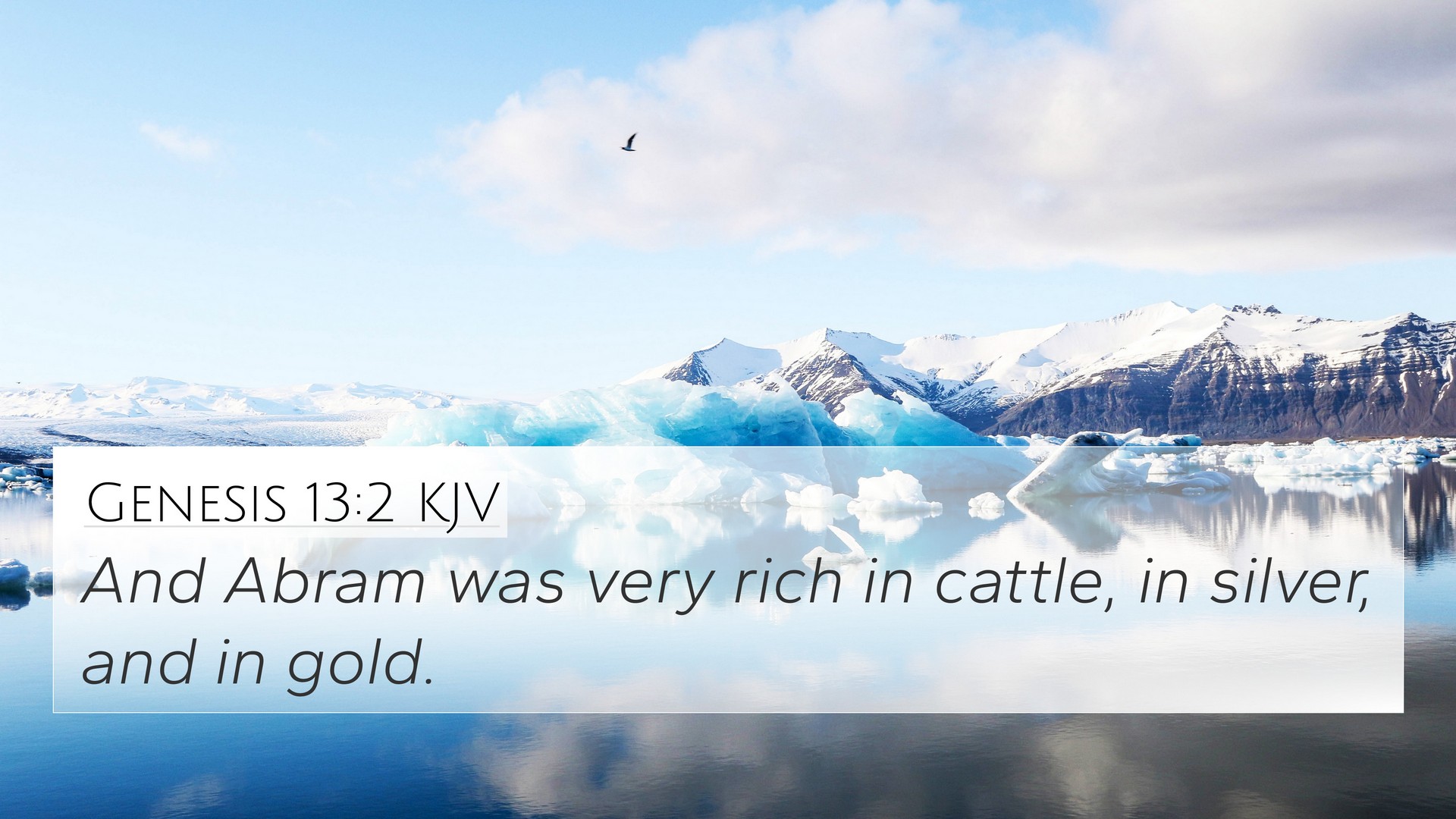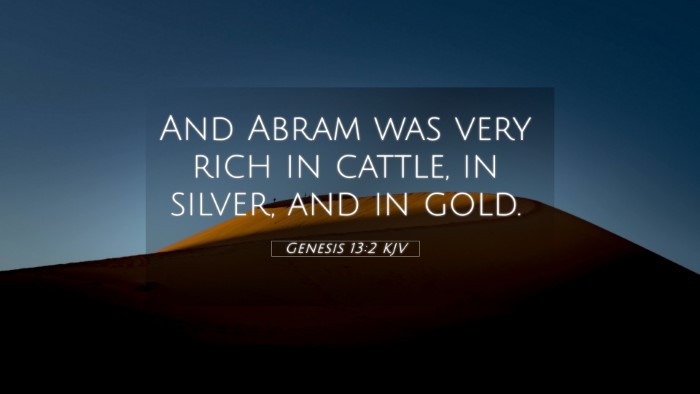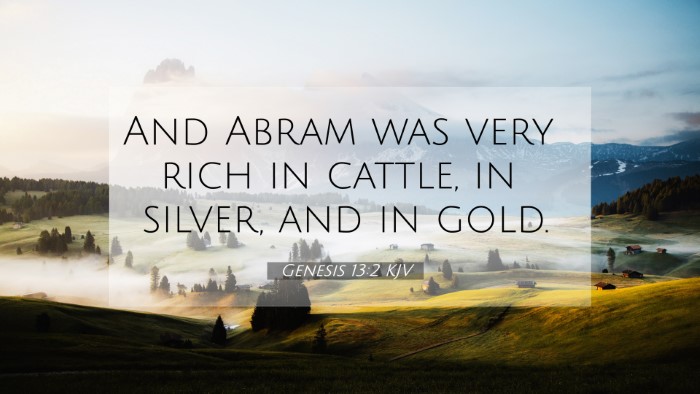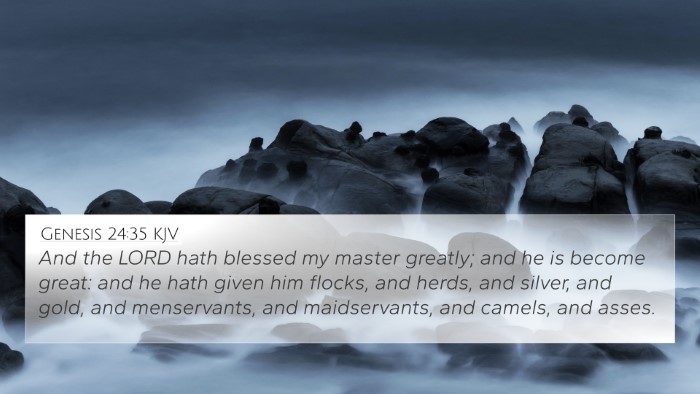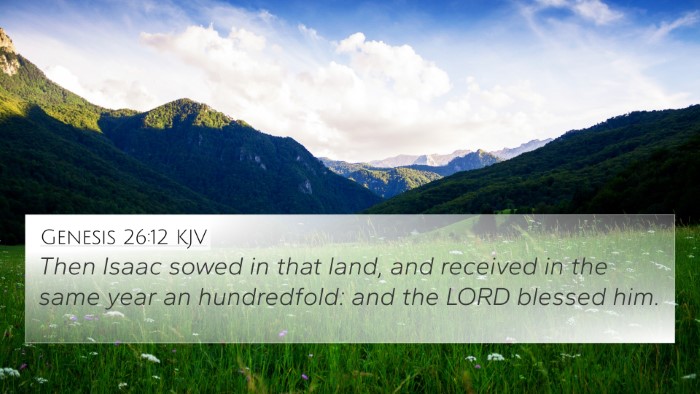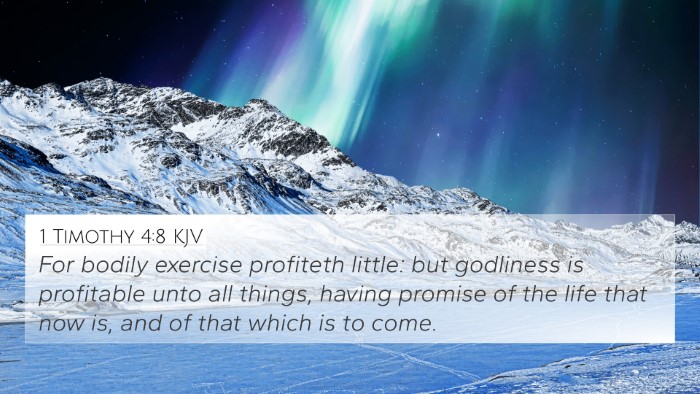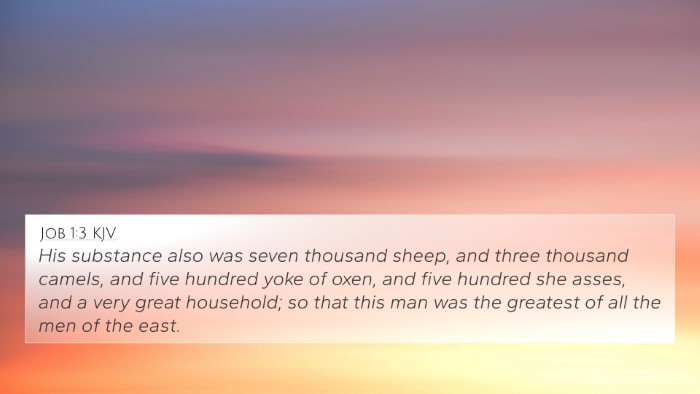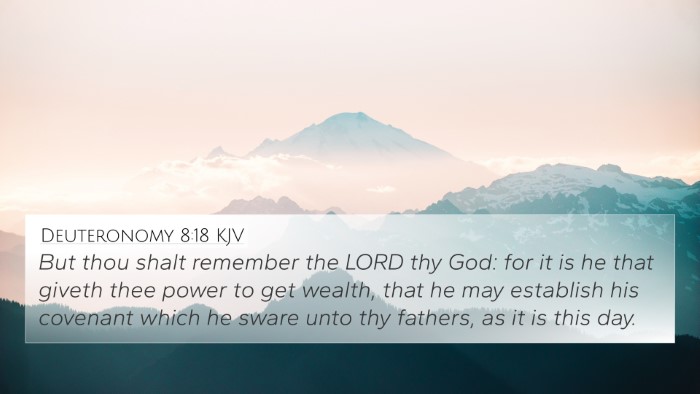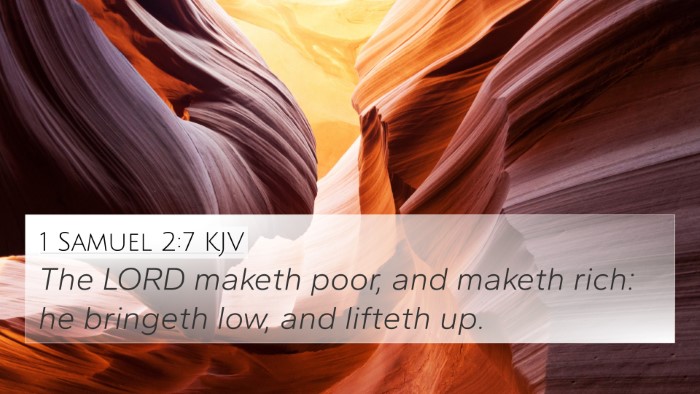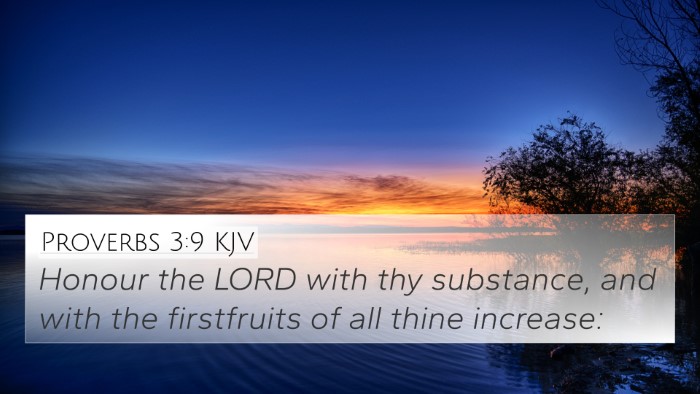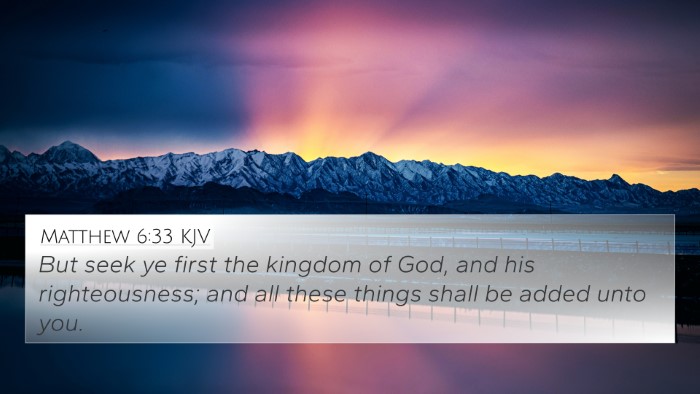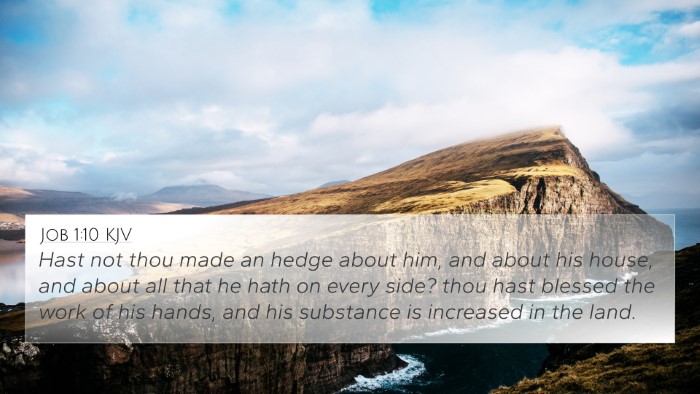Understanding Genesis 13:2
Verse Text: "And Abram was very rich in cattle, in silver, and in gold."
Summary of the Verse
Genesis 13:2 presents an important aspect of Abram's (later named Abraham) life, highlighting his wealth and status in the ancient Near East. This verse sets the stage for understanding the blessings that followed Abram due to his faithfulness, showcasing God's favor upon him and presenting a narrative of God's provision.
Key Insights from Commentaries
- Matthew Henry: Henry notes Abram’s wealth as indicative of God's blessing. He emphasizes that material wealth was a reflection of divine favor, positioning Abram as a significant patriarch in the narrative of Israel.
- Albert Barnes: Barnes expounds on the implications of Abram's riches. He argues that this wealth was not merely a personal blessing but served a larger purpose in God's plan for the Jewish nation, indicating that such blessings are a responsibility to be a light to others.
- Adam Clarke: Clarke adds a practical understanding of wealth in the biblical context, suggesting that it represents the covenant relationship between God and His people. Through Abram's riches, God demonstrated His capacity to bless those in covenant with Him.
Bible Verse Cross-References
This verse can be contextualized by cross-referencing several other scriptures, which elucidate the relationship between faith, blessings, and covenant:
- Genesis 12:2-3: God's promise to Abram about making him a great nation and blessing those who bless him.
- Deuteronomy 8:18: Recognition that it is God who gives the ability to produce wealth.
- Psalms 112:3: The righteous man’s wealth and riches being a part of his legacy.
- Proverbs 10:22: "The blessing of the Lord makes rich, and he adds no sorrow with it."
- 1 Timothy 6:17: Admonition to the rich to not be proud, but to put their hope in God who richly provides for us.
- Matthew 6:33: The exhortation to seek first the Kingdom of God and His righteousness, with the promise that all these things will be added to you.
- Genesis 26:12: Isaac’s wealth echoing that of Abram, showing a generational blessing tied to covenant fidelity.
Connecting Themes
This verse illustrates thematic connections within the Bible regarding wealth, provision, and covenant relationships:
- Thematic Bible Verse Connections: Wealth as a sign of God’s favor and blessing across different biblical accounts.
- Comparative Bible Verse Analysis: Comparing Abram’s wealth with later examples of God’s blessings in scripture such as Solomon’s wealth in 1 Kings 10.
- Bible Verse Parallels: Examining the contrast between the faithful and the wicked regarding wealth in Psalms and Proverbs.
Tools for Bible Cross-Referencing
To delve deeper into the implications of Genesis 13:2 and related verses, individuals can utilize:
- Bible Concordance: A comprehensive tool to identify key themes and connections among verses.
- Bible Cross-Reference Guide: Offers an organized method to find relevant scriptures that correspond with Genesis 13:2.
- Cross-Reference Bible Study: Methods for studying interconnected scriptures, enhancing understanding of biblical themes.
Interpreting Biblical Themes through Cross-References
Understanding Genesis 13:2 within the broader narrative of scripture encourages the study of how wealth operates in the lives of faithful individuals:
- Identifying Connections: Explore how the principles of divine provision from Genesis connect to New Testament teachings on wealth and faith.
- Similarities: Examining how Abram's situation mirrors that of later biblical figures such as Job, who also experienced immense wealth and lost everything.
Conclusion
Genesis 13:2 serves as a pivotal verse in understanding not only Abram’s wealth but also the implications of God’s blessings throughout the Bible. The cross-references and various themes of wealth, covenant, and divine provision facilitate a rich study of scriptures that connect the Old and New Testament teachings. Whether through thematic studies or individual verse analyses, this verse encourages believers to recognize the relationship between faithfulness and divine favor.
